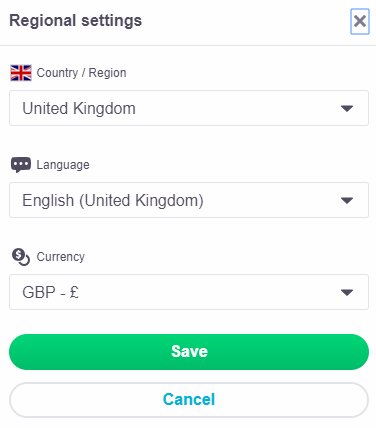We've had it repeatedly drilled into us: cookies are bad, and they can place your security and privacy at risk.
While it's true that cookies aren't the most privacy-friendly technology in the world, they do have some real benefits for users.
So, let's dispel some of the myths and misinformation. Here are six benefits of leaving cookies enabled on your browser.
What Is a Cookie?
Before we talk about the benefits of cookies, let's take a moment to define what exactly a cookie is.
When we talk about cookies on the web, we're are specifically referring to HTTP cookies. An HTTP cookie is a small text file placed on your computer by a website. It typically contains three pieces of information: a name, a value, and a series of attributes.
Almost all browsers let you see which cookies are currently installed on your system and delete cookies at your discretion.
Contrary to popular belief, allowing some cookies on your system will make your internet experience much smoother and more streamlined.
1. Online Shopping
Cookies were born out of the need for a way for companies to offer virtual online shopping baskets to their customers. Netscape was the early pioneer; it didn't want to store incomplete transactions on its own servers and instead started investigating ways in which the information could be stored locally on a user's computer.
As such, the desire for an improved online shopping experience was the one of the founding aims of cookies. It's a trait that still exists today. Almost all online shopping sites allow you to put items in your cart, leave the page, and return later to resume shopping with your cart still intact.
If you don't allow websites to store cookies on your computer, you will lose that functionality on most sites.
2. Filling in Forms
Likewise, cookies can remember commonly entered information such as names, addresses, and other fields on a form. It's a time saver if you use sites where you frequently need to fill in the same information.
To again use the example of online shopping, most sites will use cookies to remember your name and email address but will ask you to fill in (or at least confirm) your credit card details manually with each purchase.
3. Personalized Settings
Websites also use cookies to remember your various customizations.
For example, perhaps you've adjusted the language preferences, currency preferences, or theme on a website. Cookies allow the page to load the way you like it every time you log in. Without cookies, you'd need to make the changes every time you visited.
4. Personalized Content
Similarly, websites can use cookies to learn about what you like and consequently customize their content to match your preferences.
You can see this process in action on Amazon; the Related Searches box relies on cookies to suggest content you will like. The cookies allow Amazon to collect data, cross reference it with other users who have a similar profile to you, then make its recommendations.
Google, Facebook, Spotify, Netflix, and just about every other mainstream site offer their own twist on the same philosophy.
Sure, all that data benefits the companies; they use it to increase sales. But it also helps you; without cookies, no user-by-user personalization would be possible. Consequently, the amount of time it takes to find things would increase, you would be more likely to miss out on good deals, and the web would become a more frustrating place.
5. Authentication
Of the benefits connected to allowing cookies, perhaps the biggest of all is their use for authentication.
They allow web servers to know whether a user is logged in to an app or website, as well as which account they are using. If you don't allow cookies, websites will never remember that you're logged in, thus forcing you to enter your credentials every time you want to use the site.
6. Targeted Ads
Ads are part of the reality of using the web. Yes, we know you can use ad blocker extensions---or even browsers that block ads automatically---but as content creators, we strongly discourage those heavy-fisted actions.
If you're going to see ads, is it not better to see ads that are at least relevant to you? After all, that's what's so frustrating with cable TV ads. Who wants to see an ad for a fishing rod if the nearest lake is 500 miles away?
Of course, the downside of targeted ads is the tracking aspect. Internet ad companies have data on your preferred products, location, search terms, and demographics. They use all that data to display ads you might want to see.
If you'd rather not share that information with ad companies, you can disable third-party cookies on your browser.
The Cons of Cookies
As we've seen, HTTP cookies can perform a number of positive functions. But there are some cons in the areas of security and privacy. We've touched on privacy issues already, but what about security?
Cross-site scripting remains a real issue. Because client-side scripts often have access to the session cookies that are so widely used for authentication, XSS exploits can steal them.
Cross-site request forgery is also a problem. Web apps that trust the actions of authenticated users without requiring re-authentication are at risk. The process involves tricking a browser into sending HTTP requests to a non-legitimate site.
The final issue is supercookies. Despite the name, it's not really a cookie at all; the data is not saved in your browser and so clearing your cookies in the usual way won't get rid of it. We've covered everything you need to know about supercookies in another article.
You Decide the Trade-Off
Look, we're not trying to claim all cookies are good and that you should grant them unfettered access to your computer; that would be folly.
However, it's possible to make an argument that's it's equally short-sighted to implement a blanket ban on cookies. In doing so, you're discarding a lot of functionality that makes the web faster and easier to use.
Ultimately, there's a trade-off. Only you can decide where you're comfortable drawing the line.
If you'd like to learn more, check our articles about how to know who is tracking you online and how Facebook is tracking you around the web.


